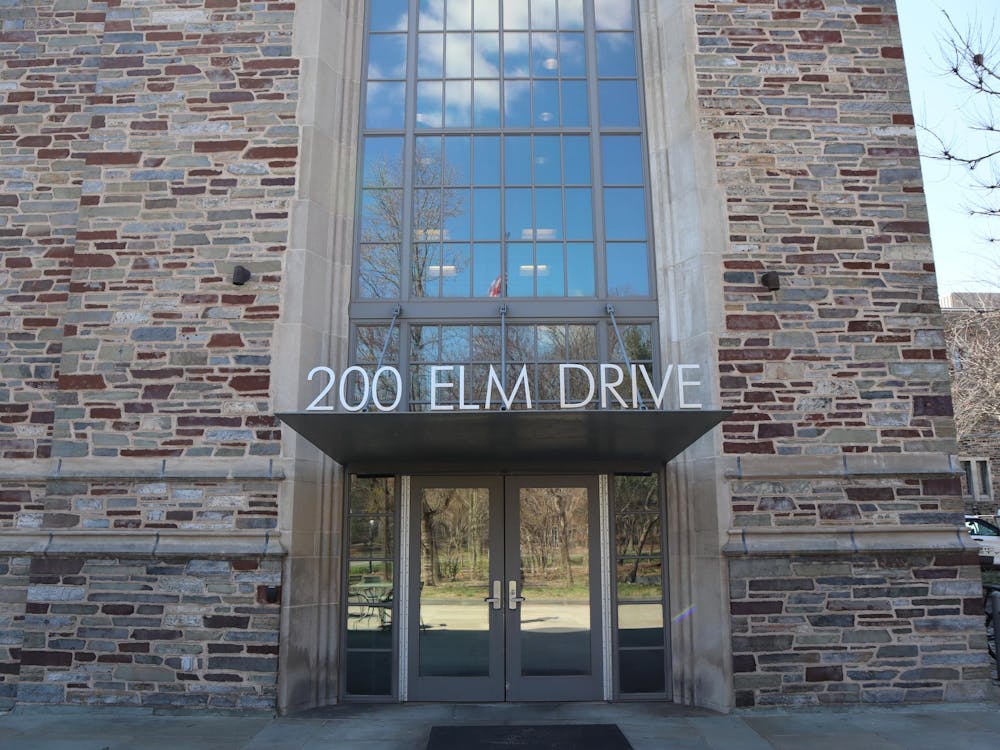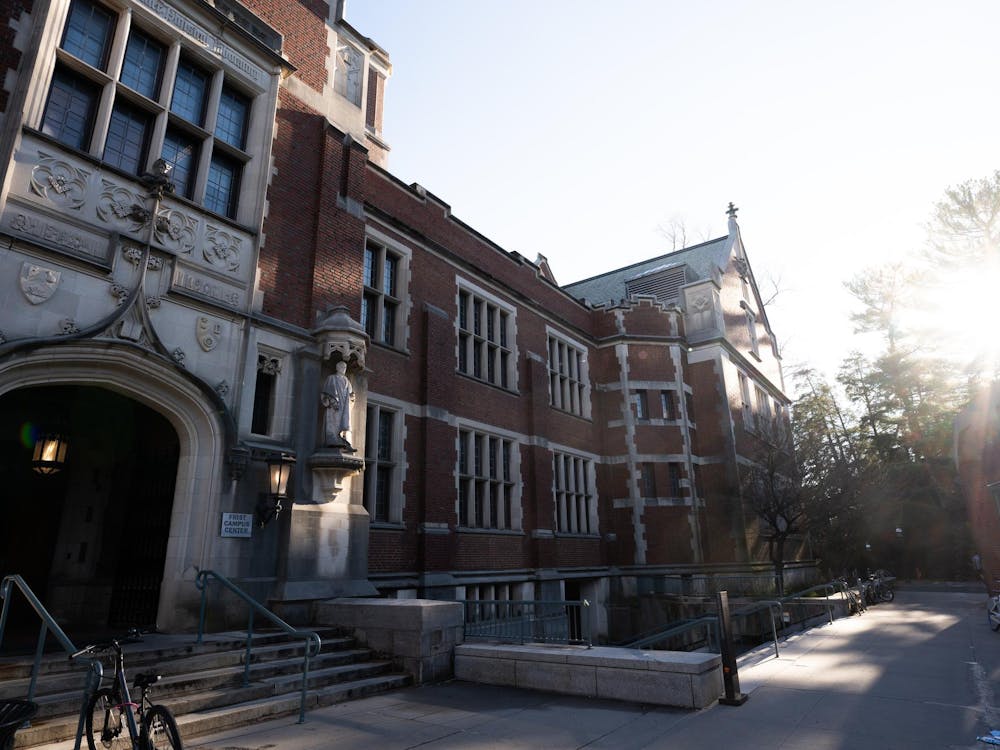The Princeton town council recently established a list of priorities to accomplish in 2014.
A number of mandatory commitments confront the council over the next year. These commitments include hiring a new town administrator to replace outgoing administrator Robert Bruschi, deciding on a new police chief and merging the former township and former borough’s codes, called“ordinance harmonization,” according to Princeton Mayor Liz Lempert.
“This was a process that actually started a year ago, at the beginning of 2013. We solicited ideas about what our priorities should be, what our goals should be from each of the councilmembers, myself, staff and the community, and we had this enormous list of over 200 priorities,” Lempert said. “To start with 2014, we looked at that list and pulled out some of the big ones we still hadn’t gotten to and solicited ideas really from the council this time.”
Councilwoman Jo Butler said she has been encouraged by the progress the town has made over the past year.
“Everybody has really been working all-out in all divisions,” Butler said. “We’ve had reconstruction of facilities … We had to rewrite personnel manuals. We’re rewriting the ordinances as we go.”
One ongoing process has been improving “town and gown” relations, Lempert said. At a December town council meeting, the University and the town came to two conclusions.
“One is when we disagree on things to have a mutual respect there and to be able to work through our differences, knowing that we might be able to come to the table with different needs and different expectations, but honestly try to work them out,” Lempert said. “And the other was, we have a large area where we have very complementary interests, and how can we better work together so that it’s a win-win for the both of us?”
One of these projects of “complementary interests” will potentially involve working together to recruit local residents to work for the town and the University.
“One of the conversations that we had when President Eisgruber came was about how the University advertises the jobs that it has and just having internal conversations here. It’s something that we could do a better job with as well,” Lempert said. “To have some sort of system or protocol, that that gets advertised locally, and people know where to go to see what it is, and we might combine that with some sort of ‘how to put together your resume’ or ‘how to interview,’ some sort of training programs too, to help diversify our staff, to help diversify the University.”
Lempert added she would like the council to have a similar meeting with Eisgruber at least once a year.
Another transition the town has had to confront is that of its police chief. Bruschi recommended to the council that interim police chief and Captain Nicholas Sutter assume the post of police chief, but the council has yet to submit written questions to Sutter and interview him. Bruschi would also have to review Sutter’s personnel file, and Sutter would have to give a public presentation.
Nonetheless, Bruschi said he believed the council should make a decision soon for purposes of finality. A study commissioned by the town showed that “stability within the department” should be the foremost criterion in determining a police chief, and he noted Sutter is well-liked by the town’s police officers.

The town needs “to keep the momentum going with all of the positive things that have gone on down there and not be indecisive as to what the leadership of the [police] department is going to be,” Bruschi said.
Former police chief David Dudeck retired in September after allegations of sexual harassment and discrimination emerged.
The town administration will also hire a public works director and a public health director, and will come to a collective bargaining agreement with public works employees and public safety dispatchers in 2014, Lempert said. She added that the administration would also be working with the fire department to examine the sufficiency of the Witherspoon Street station and to determine what would be necessary to expand it. The town council is also in the first stages of talking to the Princeton First Aid and Rescue Squad about a location for and design and financing of a possible new facility for that group, Lempert and Butler said.
Butler added that preemptively creating a zoning plan for the downtown hospital site should be a priority of the council. The former hospital building is scheduled to be destroyed in the spring.
There are “about 15” priorities from its priorities list the council will immediately work on, Lempert said.
“Just because something’s not on the list doesn’t mean it won’t rise to the top,” she explained. “Just as with life, there’s stuff that happens, and often it’s of a nature that needs to be dealt with immediately. But it’s also important to plan.”
One such priority item was recommending a plan for advisory planning districts, which are established under New Jersey law in cases of municipal consolidation and comprise residents of both former jurisdictions to “provide advice to the planning board and the zoning board,” according to a town resolution. Other items include proposing a plan for bike parking and studying the need for zoning and design standards on Witherspoon Street.
Lempert also noted that the downsizing and reorganization of municipal government had created its own issues. One item that needs addressing is the town’s vehicle fleet, she said. The fact that the town employs fewer people than the former township and borough both necessitates adjustments to the fleet, Lempert explained, adding that the town’s vehicle fleet is also aging. She said it is feasible to repaint and repurpose vehicles for use by a different department.
The downsizing of the town’s vehicle fleet would also increase its number of Sustainable Jersey points, she said.
Some of the town’s staff has also been repurposed in response to consolidation. The town is undertaking a project called “See-Click-Fix,” in which citizens can report any non-emergency concern via a telephone hotline or a mobile application, and it will be sorted by a staff member. The project will be staffed by some of the town employees whose original jobs have been redefined or eliminated because of consolidation, Lempert said.
While now residents must go online and look through the town’s directory and make a judgment call as to whom to seek help, “See-Click-Fix” should make the process easier by having a staff member make that judgment, Lempert explained.
The town will likely continue to redefine job descriptions in response to retirements. These retirements will contribute to additional cost savings, Lempert said. She said that although the town is largely on track with the savings it had projected, a lot of the savings come from personnel who may retire soon and assumptions made about when these people might be retiring may not meet the schedule for the town’s projected savings.
“We want to be somewhat flexible,” Lempert said. “There might be people who leave that we hadn’t anticipated and instead of automatically replacing them, we look at the organizational chart and see if makes sense to replace them, if it makes sense to redefine the job description.”
The town is also interested in seeing an organic waste recycling facility come to fruition in Mercer County, Lempert said. Lempert explained that the town currently ships organic wasteto Delaware, which she said adds significantly to the cost of the program, though she said she hopes the county steps up to help.
However, Lempert also said that, despite its challenges, it is important to keep recycling organic waste.
“New Jersey has a real problem with space to throw stuff out. The landfill that we use is getting near its capacity,” Lempert said. “It’s waste but it’s also something that can be used for a useful purpose. If you throw it out, you’ve destroyed its value. It can be turned into compost, and it’s certainly more environmental to do it that way.”
The council and administration have also been making progress on some of the priorities currently listed. For instance, the town’s police officers underwent training last week regarding the town’s policy on police interaction with immigrants.
“I think Princeton has been at the forefront of this, being really clear both for our own officers and for the community. The bottom line is that our police are there to keep everybody in the community safe,” Lempert said. “Especially when [federal and local directives] come into conflict. If someone’s a victim of a crime, it’s really important that they feel like they can report that to the police, because if they don’t, not only is that bad for the victim, but it endangers everybody.”
This has not been an abstract problem for the town, Lempert said, noting that the town has had a couple instanceswhen U.S. Immigrations and Customs Enforcement came to town but did not notify the police department.
“It was really dangerous,” she explained. “There was protocol that they didn’t follow, and it was reported to our police as a possible kidnapping, and it would be horrible if our police responded and got into [a firefight] with ICE.”








